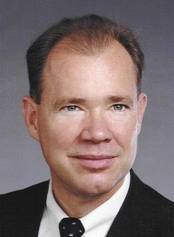A just released survey by Probolsky Research shows that most California voters now oppose new or increased local taxes. A majority, 55.5%, would vote “no” on a local measure that would increase taxes in order to maintain service levels, while only 34.8 would vote “yes.”
 Admittedly, a poll is just a snapshot of attitudes during a moment in time and those views can change in response to new information. For example, in November of last year, San Diegans elected a new mayor – an election being the ultimate poll of public sentiment. Now that the new mayor is facing multiple accusations of sexual harassment, many of his top supporters are calling for his resignation, and were an election — or poll – held today, it is quite certain the mayor would come out on the losing end.
Admittedly, a poll is just a snapshot of attitudes during a moment in time and those views can change in response to new information. For example, in November of last year, San Diegans elected a new mayor – an election being the ultimate poll of public sentiment. Now that the new mayor is facing multiple accusations of sexual harassment, many of his top supporters are calling for his resignation, and were an election — or poll – held today, it is quite certain the mayor would come out on the losing end.
Last fall, voters approved Proposition 30, a $50 billion tax hike that increased income taxes on the upper-middle class and wealthy and a sales taxes on everyone. This lead many on the left side of the political spectrum to pronounce that the last vestiges of the California Tax Revolt of 1978, which gave us Proposition 13, had collapsed and the public was anxious to usher in a new long-term era of higher taxes.
The Probolsky survey of voter attitudes toward local taxes provides a strong indication that the Left’s expectations were premature and that the Sacramento tax-and-spend lobby may be a victim of both its own success and excess. After all, Proposition 30 was sold as a solution to the state’s perennial budget problems and as the salvation of public education. While voters acquiesced to a higher tax burden, they now see that there is enough money to provide the governor and lawmakers with a 5.2% raise and a 4.5% increase for state workers. Looks like they have come to the logical conclusion that government is doing well enough.
Those in government will make the argument that state and local taxes are not the same because they fund different services. Thus, even if voters don’t want to spend more locally this doesn’t mean they don’t want more money to go to Sacramento.
But this argument ignores the real world concerns of taxpayers. Former Speaker of the House Tip O’Neil coined the phrase, “All politics is local.” In one sense, so too are taxes since they come from the locality of the taxpayer’s wallet. When arguments are made that some level of government needs more, the taxpayer’s first reaction is to look to see how much it will cost them. If they have little or nothing to give, arguments about the competing needs of federal, state or local government don’t get much traction. By passing Proposition 30, voters believe they have done their part and government at all levels should make do with what they have.
Further evidence that resistance to new taxes is strong is revealed by the response to another poll question. Voters in general have a positive view of their local elected officials. With this in mind, if they are not willing to give more money to local officials who have their support, why would anyone think they would want to provide more to the Sacramento politicians, who fare much worse in public opinion surveys?

